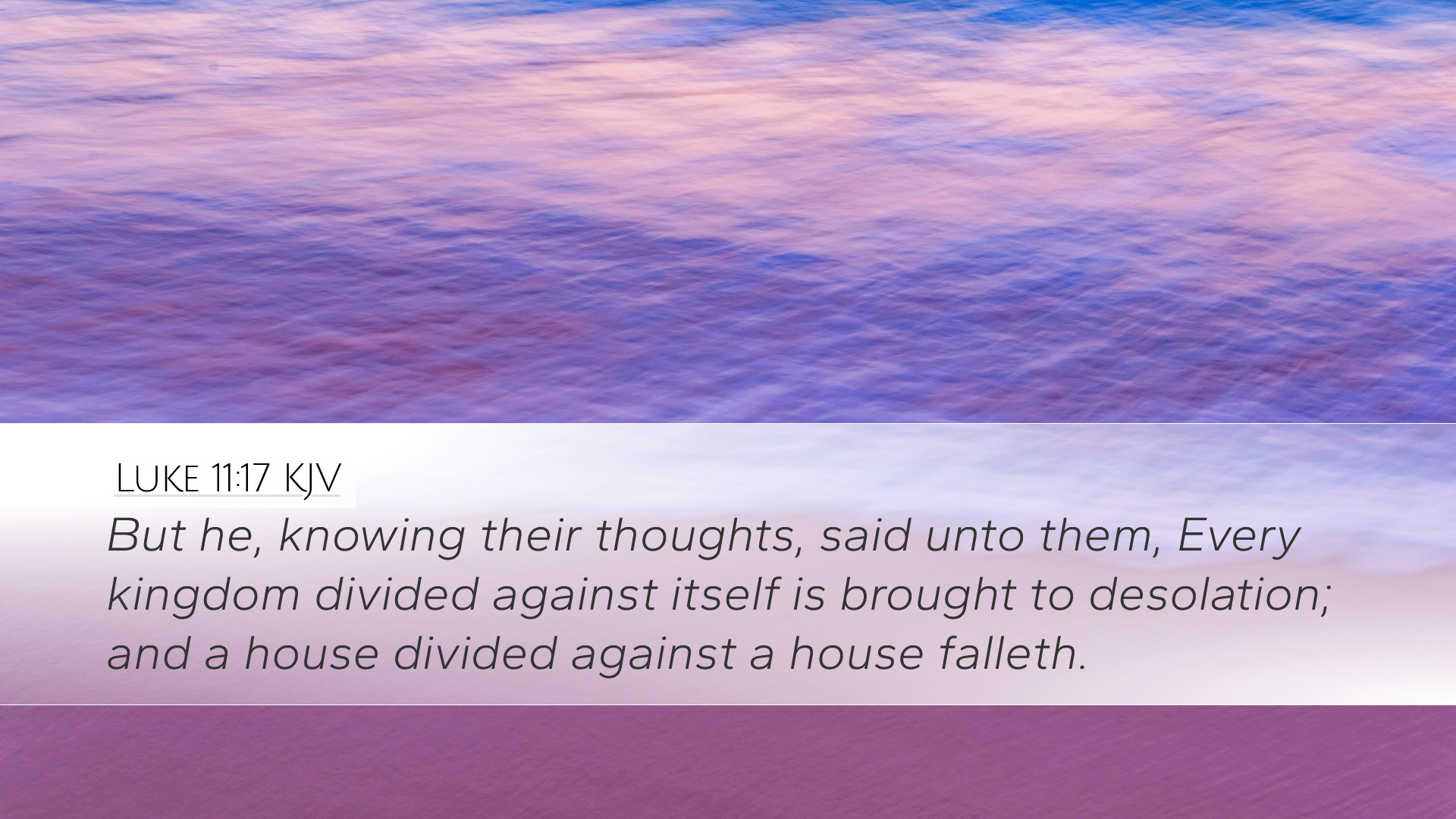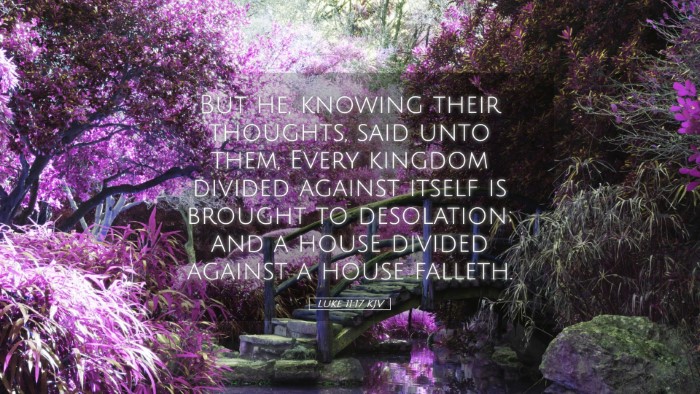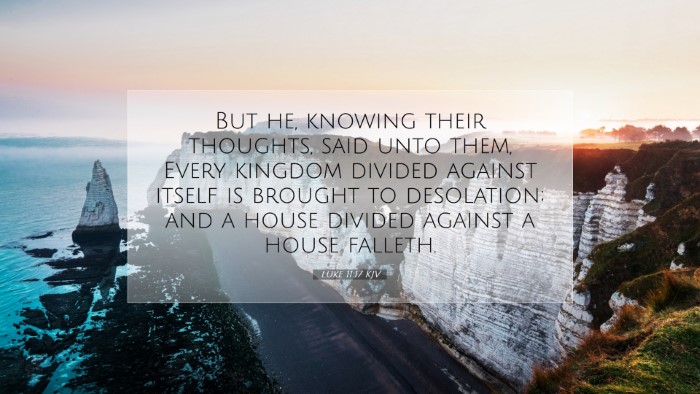Luke 11:17 states, "But he, knowing their thoughts, said to them, 'Every kingdom divided against itself is brought to desolation; and a house divided against a house falls.'" This verse captures a pivotal moment in Jesus’ ministry, addressing accusations about His authority and the nature of His works.
Contextual Examination
The background leading to this assertion is critical. Jesus has been performing miracles, including casting out demons, which prompted the Pharisees to accuse Him of using Beelzebub, the prince of demons (see Luke 11:15). This accusation is indicative of their mounting resistance to His teachings and the authority He commands over evil spirits.
Insights from Matthew Henry
Matthew Henry elaborates on this conflict by emphasizing the wisdom of Christ in discerning the thoughts of His critics. He notes that Jesus’ knowledge of their inner thoughts showcases His divine nature and authority. Henry points out:
- The futility of the accusation against Jesus is highlighted. How can Satan cast out Satan?
- Henry remarks on the principle of unity within opposition: "A kingdom divided against itself cannot stand." This serves as a theological and practical principle applicable in both spiritual and secular realms.
Albert Barnes' Commentary
Albert Barnes provides a systematic analysis of the implications of division within a kingdom. In his commentary, he states:
- “Every kingdom divided against itself will be ruined”—emphasizing that civil discord leads to destruction, a lesson that can be applied to the Church and nation.
- Barnes also highlights that Jesus was adept in illuminating the absurdity of their claims. If the devil is opposing himself, then his kingdom cannot endure.
Adam Clarke's Interpretation
Adam Clarke delves deeper into the cultural implications of Jesus' statement. Clarke discusses:
- The historical context of kingdoms during Jesus' time, illustrating that rival factions often led to ruin, drawing parallels to the spiritual state of Israel.
- His take on the phrase “a house divided”—Clarke interprets this to include families and communities, suggesting a broader application of Jesus’ words beyond the immediate situation.
Theological Reflections
This passage challenges leaders and believers alike to reflect on the unity within the Church. The unity of believers is proclaimed throughout the New Testament (e.g., 1 Corinthians 1:10, Ephesians 4:3). A divided church reflects poorly on the body of Christ and undermines its mission.
Practical Application
In pastoral and theological contexts, this verse serves as a warning against division:
- In Leadership: Church leaders must strive for unity, addressing conflicts and discord promptly to prevent disunity from taking root.
- In Doctrine: Ensure doctrinal integrity among members to avoid the pitfalls of divisions arising from divergent beliefs.
- In Relationships: Foster an environment of forgiveness and reconciliation, as a ‘house’ built on mutual respect can withstand external pressures.
Conclusion
Luke 11:17 is more than just a statement about the inevitability of division; it reflects a profound truth about the nature of power struggles both in the spiritual realm and in human institutions. Jesus invites us to consider the unity of purpose as essential for strength, growth, and fidelity to His mission. Pastors, theologians, and students can draw from these ancient insights to navigate modern challenges in the ministry and beyond.


